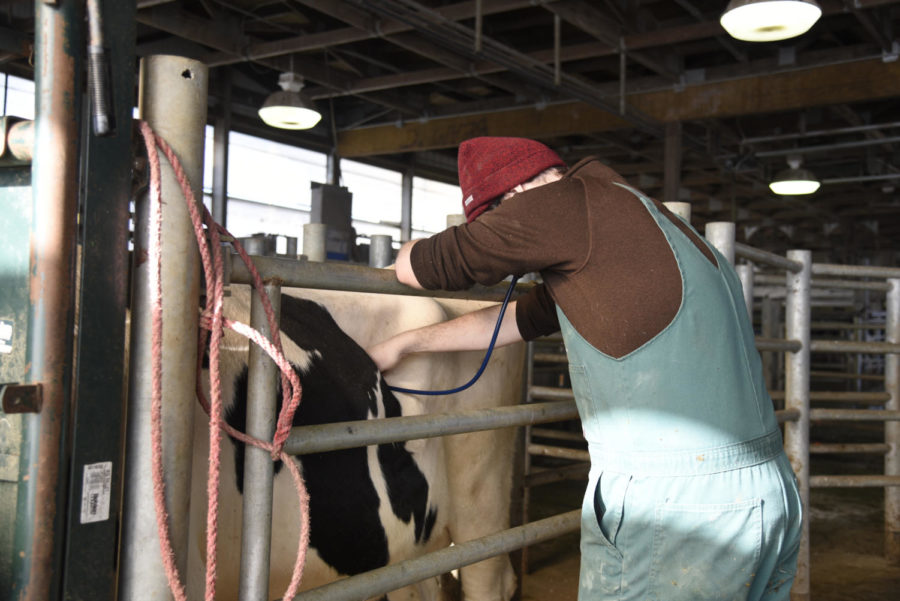Veterinary medicine college follows protocols to reduce COVID-19 transmission risk
Caitlin Yamada/ Iowa State Daily
The College of Veterinary Medicine is following protocols to mitigate the spread of COVID-19 while continuing with operations.
March 31, 2020
Iowa State’s College of Veterinary Medicine has taken several measures to lessen the severity of the spread of COVID-19.
The Lloyd Veterinary Medical Center, Veterinary Field Services and the Veterinary Diagnostic Laboratory have each made specific protocols to reduce the risk of COVID-19 transmission, said Stephanie West, the director of hospital operations.
West said they are primarily working to keep up with the pace of the changes, which include creating and implementing policies for the safety of those at the college while still running the hospitals and diagnostic labs and providing veterinary education for students.
“Our senior leadership meets daily to review and assess the situation as it applies to our college,” West said in an email. “All meetings are being conducted virtually.”
Students employed in the College of Veterinary Medicine are following the procedures in place to prevent COVID-19 transmission. Students are employed in the Veterinary Diagnostic Laboratory, Lloyd Veterinary Medical Center and other areas critical to maintain key services.
“Again, we are following all guidelines set forth by CDC, the Iowa Department of Public Health and the university to do our part to flatten the curve and protect the health and safety of our students, faculty and staff,” West said in an email.
Some maintenance like public safety and custodial staff are still providing essential services in the buildings. For faculty and staff, many are working remotely, and faculty and information technology staff are using offices and equipment to prepare for and deliver online instruction.
Looking to the near future, the College of Veterinary Medicine will continue to monitor the COVID-19 situation, adjusting and changing what is needed. They are also planning the details of how they’ll deliver clinical education to fourth-year students beginning in May.
“Our top priority is the health, safety and well-being of our community,” West said in an email. “We are hosting virtual town halls weekly with students, faculty and staff to provide information and to keep our community connected during this extraordinary time. And we are doing everything we can to keep community. Stay informed. Be well.”







